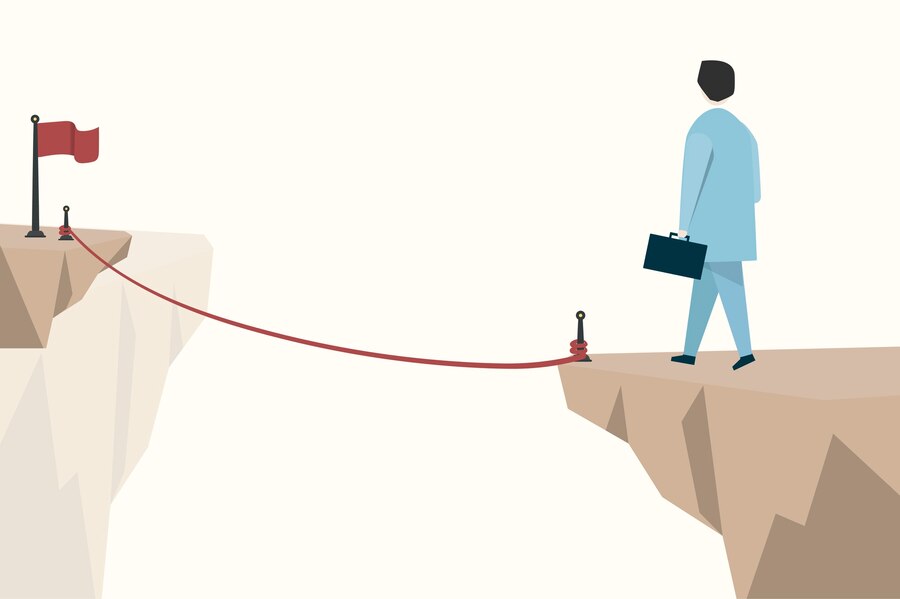Have you ever taken a break from your job to pursue personal or family matters or give yourself space to grow?
Have you ever decided to leave the corporate world and pursue a career outside of your industry, such as becoming a travel vlogger? Or about taking a year off to unwind and assess your strengths? Is having a gap year on your resume acceptable?
After reading this article, you should have a better understanding of what a gap year is and what you need to do to resume your work after one.
What is a Gap Year?
A gap year, often referred to as a sabbatical year, is typically a lengthy period before or after college or university during which time individuals aim to differentiate themselves from the crowd by participating in a variety of extracurricular activities and exploring new areas. The typical gap year lasts 12 months, however it may last longer depending on your objectives.
While taking a break for introspection is important, it’s usually advisable to work during those periods as well, as a successful gap year might look good on your CV. Do not be hesitant to highlight the abilities you acquired during your year off on your CV if you have one.
To prepare for joining the industry, students often take a vacation from their normal studies between high school and occasionally after graduation. This time is referred to as a “gap year.”
Other terms for a gap year that are frequently used are pre-year, leap year, drop year, foreign experience, foundation year, and route.
Why Take a Gap Year?
It’s common to attempt changing careers, improving your abilities, or taking a year off to figure out what fits best for you. In a poll done back in 2005, the Harvard Business Review discovered that 24% of males and 37% of highly skilled women have at some point in the past intended to return to the workforce after leaving their employment.
Additionally, following the COVID-19 epidemic, a career gap year or adult gap year is generally considered common in the work field.
People take gap years for a variety of reasons. As to the data provided by the Australian Bureau of Statistics, around 47% of men and 73% of women, respectively, take a gap year for personal reasons. But eventually, you’ll want to climb back up the employment ladder, regardless of why you took the year off.
If you intend to take a gap year, you should think about how different activities may advance your long-term professional development, support charitable causes, provide you with a better grasp of your area of interest, etc.
Thus, to make your market value worth, it while taking a gap year, don’t forget to brush up on your talents.
5 Things To Do Before Restarting Your Career After a Gap Year

If you find yourself in this predicament or are considering taking a gap year, you should take these factors into account as they will improve your chances of landing your flight smoothly.
1. Update Your Resume With Gap Year
Candidates frequently fear that having a gap year on their CV would harm their career or give the wrong impression.
However, make the most of this, and don’t let it make you feel insecure or adversely see it. Highlight all of the knowledge and expertise you acquired over your year off. Describe how the abilities you have gained will help you develop shortly and how you will benefit the firm.
Don’t conceal it if you haven’t worked for a while. Just remember that you should never lie on your CV.
2. Network
Remember your past contacts as you begin your first job hunt following a year off. They may be quite beneficial, particularly for your LinkedIn professional careers.
Tell the people you used to work with, your family, friends, and former coworkers that you are looking for a new job. Take some time to do this. They could know just the work for you, or they might guide you on the correct path.
Take the initiative to approach someone instead of waiting for them to do it. Once you do, everything will start to fall into place.
3. Get Ready for Your Interview
Make sure you are well-prepared for your interview by reviewing your material for your gap year. You can be questioned about why you enrolled in it and how the abilities you picked up during that time would benefit you.
Recall that being honest comes first. Clearly state what you did and why you felt it was the best course of action for you at that particular time. You might modify your response to highlight how you would be the most suitable for the position for which you are applying.
Never give up on your ascent to success and have faith in yourself.
Recommended Read: Is a Gap Year After Class 12th Right For You? Pros and Cons Explained
4. Show You’re Serious with Your Certification
If you have experience working in an area that is changing quickly and expanding along with the economy, like digital marketing or information technology, you may learn about these developments and brush up on your abilities before entering the field once more.
Getting certified might enable you to accelerate once again. Your market value will also rise as you’ll have fresh knowledge to go along with your prior expertise and knowledge. Having a certificate will set you apart from a job applicant who is equally unqualified and inexperienced but does not have a career gap.
To stand out, add certification to the abilities you learned during your year off.
5. Be Confident
Whether you have taken a year-long vacation from work or only a month, getting back on track can be challenging. However, if you’re determined and self-assured, you can conquer anything.
Ask for assistance if you are unable to manage. If you’re unsure, find out where your strengths are by getting input from your friends and family. Should you feel that your abilities are outdated, enroll in a refresher course.
Examine your rivals, peruse the most recent publications in your sector, and find out what trends are happening in it. Recognize yourself using the most recent market trends. Being aware of these can make you a lot more self-assured, particularly in the interview setting.
Whatever you do, never give up.
Conclusion

Unbelievably, more people than you may imagine choose gap years, but the stigma is around how you’ll occupy the time.
Everybody is unique, and so is the professional ladder we all follow. Occasionally, we tend to climb a different ladder, leading to a different route. Thus, it’s OK to pause at that point to locate your ladder. You are free to explore outside of your field of expertise for better options. Whatever you do, never give up!
Please feel free to avail EnrichMyCareer if you have any questions regarding taking a gap year or career counseling.
Visit EnrichMyCareer for more information.
Frequently Asked Questions
1. Can I get a job after a 7-year gap?
Indeed, obtaining a job after a prolonged absence is attainable; all it takes is determination and persistence.
2. How many years of career gap is acceptable?
Shorter gaps—between a few months and a year—are typically easier to understand and accept. Applicant can show that they were actively engaged in relevant activities or continued their professional growth throughout the gap. Longer gaps, nevertheless, can call for a more in-depth rationale and explanation.
3. Can I get IIM after a gap year?
When it comes to MBA admissions at b-schools like IIM Ahmedabad, IIM Bangalore, etc., it doesn’t matter whether your gap years are brought up during the interview process.

A content writer with a passion for crafting engaging content. Dedicated to continuous learning and innovative, excels at adapting diverse writing styles.



